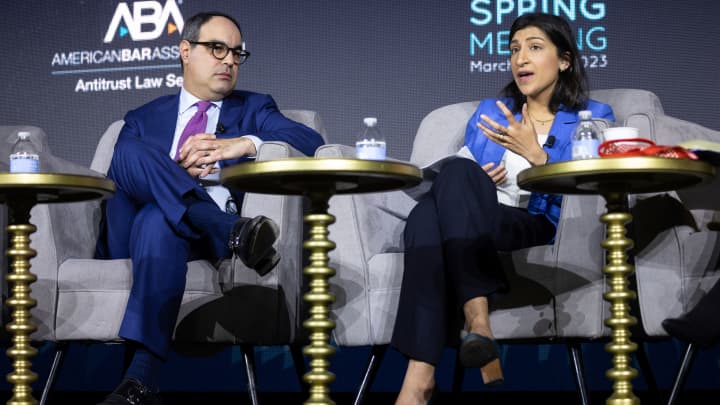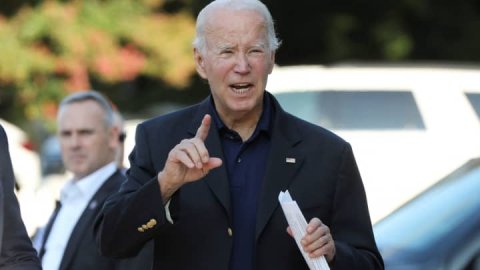
WASHINGTON — Two of the nation's top corporate regulators on Thursday defended new guidelines on merger enforcement that have attracted pushback from the business community.
"Which mergers go through and which ones do not can be hugely consequential for people's lives," Lina Khan, Federal Trade Commission chair said at an event hosted by the nonprofit American Economic Liberties Project.
"If you're a worker, it can mean that your new employer has more power over you and so they can use that power to freeze your wages or make your schedule less predictable," said Khan. "If you're a business, it can mean that the supplier that used to offer you a competitive rate is now able to jack up prices."
Khan was joined at the event by Jonathan Kanter, assistant attorney general for the Justice Department's antitrust division.
"I think a lot of the hysteria is perhaps overblown, that we're not blocking every merger," Kanter said. "We can't, we only block the ones that violate the law."
Kanter added that a "small fraction" of mergers on a yearly basis require investigation. "We have thousands of filings a year. There's certainly not thousands of challenges," he said.
The were released jointly by the Federal Trade Commission and the Justice Department's Antitrust Division in July.
They include the agencies will use to evaluate vertical and horizontal mergers, including whether the merger significantly increases concentration in highly concentrated markets, eliminates competition between firms, or increases the risk of coordination.
A between grocery chains and , for instance, is pending FTC approval while the agency possible strains on supply for smaller grocery chains.
Sen. Elizabeth Warren, D-Mass., a corporate watchdog in Congress, "provide a much-needed update to counter the real harms posed by corporate monopolies" after the guidelines were announced last month.
But Neil Bradley, executive vice president and chief policy officer of the U.S. Chamber of Commerce, the world's largest business organization, said the DOJ and FTC are unfairly focusing on mergers.
"The agencies peddle a false narrative on concentration in our economy, are quick to dismiss the benefits and efficiencies mergers create for consumers, and ignore the positive impact mergers have on innovation," Bradley said in a in July.
Both agencies are accepting public comment on the guidelines through Sept. 18.




